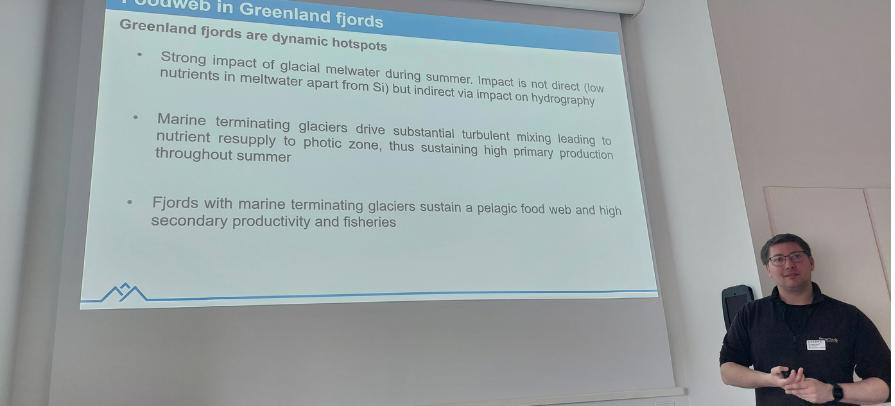Melt Water from Glaciers Have Great Influence on the Sea
The climate is warming faster in the Arctic region than elsewhere on earth which makes Greenland a focal point in the research into climate change.
At a workshop for marine researchers from Faroe Islands, Denmark and Greenland last week senior researcher Lorenz Meire from Greenland Climate Research Centre presented his research on the impact by melting glaciers on the nutrient dynamics in Greenland fjords and coastal seas.
About one thousand gigatonnes of freshwater flows into the sea from glaciers every summer. This quantity is equal to one third of the global consumption of freshwater and is expected to increase substantially in the future.
Melt water enters the sea in two ways. For glaciers that end on land, a turbid river loaded with sediment runs into the sea. This results in lower productivity, meaning that little sea life develops. For glaciers that end at sea, strong upwelling is observed where the glaciers terminate which brings up many nutritients. At those locations, an extremely rich sea life arises.
The fjord water in Greenland is now 1 to 2 degrees warmer than it used to be,
